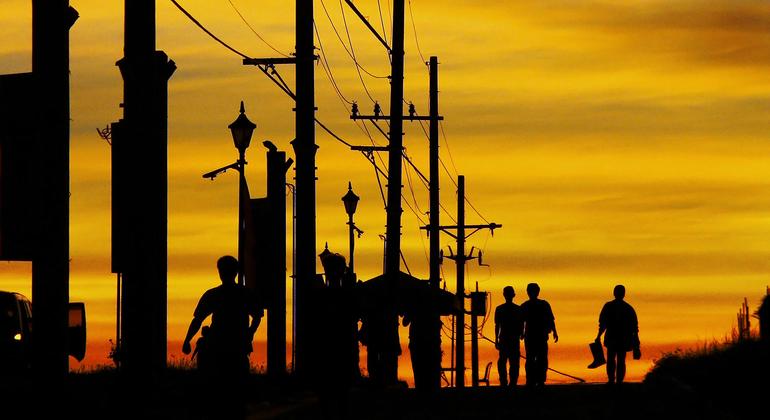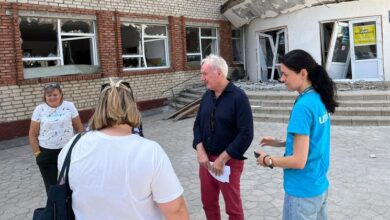Temperatures are rising: We must meet the challenge of rising temperatures, UN chief urges


The Stunning against the backdrop of record temperature And deadly heat wave – from the United States to Africa’s Sahel and Europe to the Middle East – there are kill hundreds of people this summer.
For example, during the Hajj pilgrimage, scorching heat claimed the lives of more than 1,300 pilgrims.
“Billions of people are facing an extreme heat pandemic – wilting under increasingly deadly heatwaves, with temperatures reaching 50 degrees Celsius around the world. That’s 122 degrees Fahrenheit – half the boiling point,” Secretary-General António Guterres say at one Press Conference at the United Nations Headquarters in New York.
“The message is clear: temperatures are rising. Extreme temperatures are having extreme impacts on people and the planet. The world must respond to the challenge of rising temperatures.“ .
Protecting the most vulnerable
The UN Secretary-General stressed that while “high temperatures are wreaking havoc everywhere”, It does not affect everyone equally..
Those most at risk include the urban poor, pregnant women, children, the elderly, people with disabilities, the sick and displaced people, who often live in poor quality housing and lack cooling systems.
According to United Nations estimates, heat-related deaths among people over 65 have increased by about 85 percent over the past two decades, while 25 percent of children are now regularly exposed to heat waves and by 2050 that figure could rise to nearly 100 percent.
“We must respond by dramatically increasing access to low-carbon cooling, expanding passive cooling – such as natural solutions and urban design and cleaning up cooling technologies while increasing their efficiency,” Mr. Guterres said, calling for increased financing to protect communities from “climate chaos.”
Protect workers
Mr. Guterres also stressed the need to strengthen protections for workers.
More than 70 percent of the global workforce, or 2.4 billion people, are at high risk of exposure to extreme temperatures, according to a new report from the United Nations’ International Labor Organization (International Labor Organization).
The situation is particularly dire in the African and Arab regions, where more than 90 percent and 80 percent of workers are exposed, respectively. Asia and Pacific – the world’s most populous region – that figure is three in four workers (75 percent).
Additionally, heat stress in the workplace is expected to cost the global economy $2.4 trillion by 2030, up from $280 billion in the mid-1990s.
“We need human rights-based protections for workers,” Mr. Guterres stressed.
“And We must ensure that laws and regulations reflect the realities of today’s extreme temperatures – and are enforced.“ .
Enhance resilience
He also stressed the need to strengthen economic and social resilience, citing impacts such as damage to infrastructure, crop failures and increased pressure on water supplies, health systems and power grids.
Cities are particularly vulnerable as they warm at twice the global average.
To address these challenges, Mr. Guterres called on countries, cities and regions to have comprehensive and appropriate action plans based on scientific data.
“We need a concerted effort to cool the economy.key sectors and the built environment.”
Fight disease
The UN Secretary-General reiterated that it is important to recognise the myriad symptoms beyond extreme heat, such as storms, floods, droughts, wildfires and rising sea levels.
He declared that the core problem is fossil fuel dependence and lack of action on climate change, stressing that governments, especially G20 countries, the private sector, cities and regions, must urgently adopt climate action plans to limit global temperature rise to 1.5°C.
In addition, countries must urgently phase out fossil fuels and end new coal projects.
“They must act as if our future depends on it – because it does.“ .




